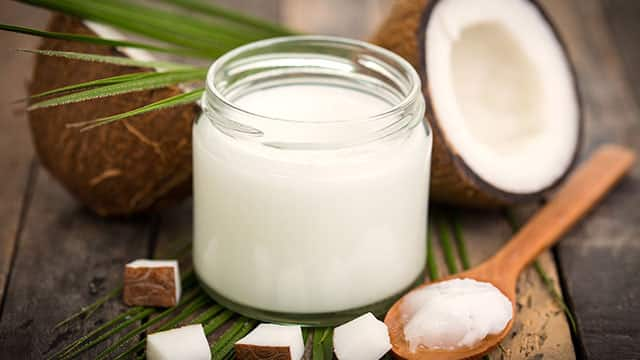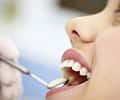Facts About Tooth Enamel
Before getting into regrowing teeth, it would be good to know more about your teeth's composition. And specifically some tidbits on your enamel — the outer surface of your teeth. Did you know:
- Enamel is the hardest substance in your body. Yep. Harder than bones.
- However, hard candy and sweets, sugary drinks, foods that get stuck in your teeth, alcoholic beverages, and acidic food and beverages can erode your enamel.
- Enamel is not alive, unlike bones that can regenerate and fuse back together.
- But enamel can be remineralized, which means it can increase its mineral content with fluoride and a calcium-rich diet.
So then you're probably wondering, "what's the deal with coconut oil?" Well, you may have heard of oil pulling. Hundreds of years ago, folks thought rinsing with coconut oil would fight plaque, bacteria buildup, and tooth decay. However, the American Dental Association would disagree. In fact, they don't recommend using coconut oil for anything regarding your oral health.
Can Coconut Oil Help Your Teeth at All?
What do we know about coconut oil? A few things, actually.
- It does not help you regrow teeth. It's just not scientifically possible. Sorry, but that's one tall tale.
- It consists of lauric acid, explains Heliyon, which has some antimicrobial and anti-inflammatory properties, which could be good for your oral health.
- And according to the University of Harvard School of Public Health, coconut oil is:
Bad for your heart
But good for your hair and skin
It's important to know that there is still not enough data or research on coconut oil to assess all of the health benefits or risks it may cause.
When you're thinking about undergoing some at-home oral health treatments yourself, it's good to know the facts first. Those are threefold. First, coconut oil pulling doesn't help out in the plaque or cavity department. Next, not only is coconut oil unable to regrow your teeth, nothing can. And lastly, the key to healthy teeth and enamel is proper oral care. And that means regular brushing using a soft-bristle toothbrush with fluoride toothpaste, as well as flossing and dental checkups. It's there with your dentist that you'll grow some confidence in the answers they provide for any at-home treatment questions you may have.
Oral Care Center articles are reviewed by an oral health medical professional. This information is for educational purposes only. This content is not intended to be a substitute for professional medical advice, diagnosis or treatment. Always seek the advice of your dentist, physician or other qualified healthcare provider.
ORAL HEALTH QUIZ
What's behind your smile?
Take our Oral Health assessment to get the most from your oral care routine
ORAL HEALTH QUIZ
What's behind your smile?
Take our Oral Health assessment to get the most from your oral care routine
Join Us
Get the best of your oral health routine and take it to the next level with expert advice, recommendations, products and solutions and special offers.
Join Us
Get the best of your oral health routine and take it to the next level with expert advice, recommendations, products and solutions and special offers.















